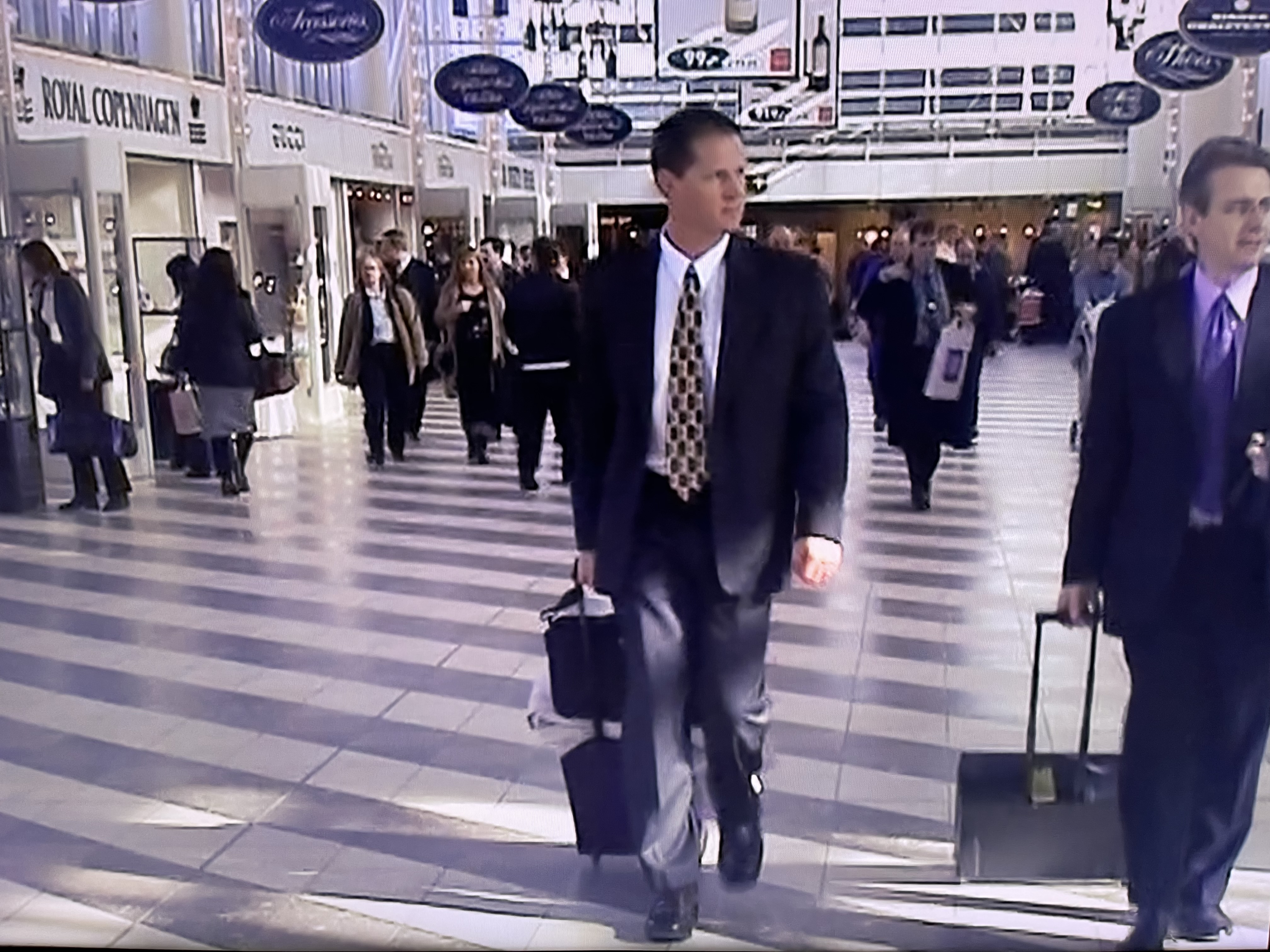MEN AT KASTRUP

The film comprises extracts from interviews with businessmen who regularly spend time at this airport hub, and from conversations with passenger assistants, salesclerks, and fellow passengers who interact with and deal with these businessmen on a daily basis.
Organized along a number of themes, the film begins with exploring the topics of service, travel frequency and consumption patterns. The documentary then moves on to focus on issues of male dominance, feminism and businessmen's clothing – with the aim of challenging prevalent norms of hegemonic masculinity by asking 'unexpected questions'.
Inspired by theories from the field of gender and organization, MEN AT KASTRUP directs attention to transnational arenas for the construction of leadership and gender. Over the years it has been screened in a variety of settings, for example at Stockholm School of Economics, Stanford University, Boston University, Stockholm University, Kulturhuset Stadsteatern, Södra Teatern, Volvo, Vattenfall, SAS, Göteborg University, Chalmers and Aalto University.
The film, which is 35 minutes, was made by Nanna Gillberg and Jenny Lantz in 2004 (when they were both PhD students at SSE)
Jenny Lantz says:
“Over the last 20 years, lots of things have changed regarding how we work and travel. The airport as a social arena has altered. Dominating constructs of masculinities have also somewhat shifted. But, although gender equality of Swedish business life has improved in some areas, male dominance is still the norm in most management groups and boards, and in many industries. Lack of gender equality is a huge problem in business life. I think our film still casts an important light on how such gender structures are reproduced and how subordinated groups know a lot more about the dominant groups than vice versa.”
“I’m really looking forward to reflect on what has changed since we made the film. In what arenas are masculinities reproduced today? Considering our society is more diverse today, are men in male dominated environments more aware of the lack of women? How would people in a similar setting respond to questions about feminism today?” “
